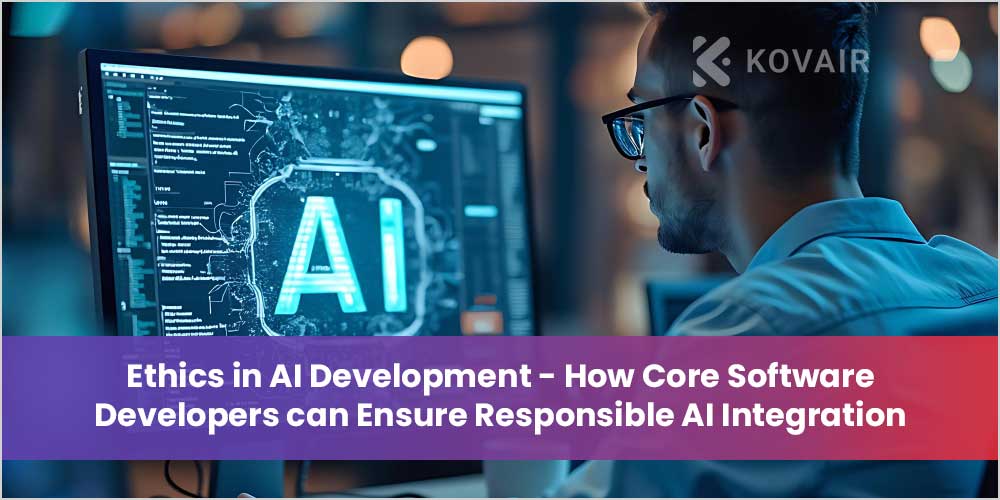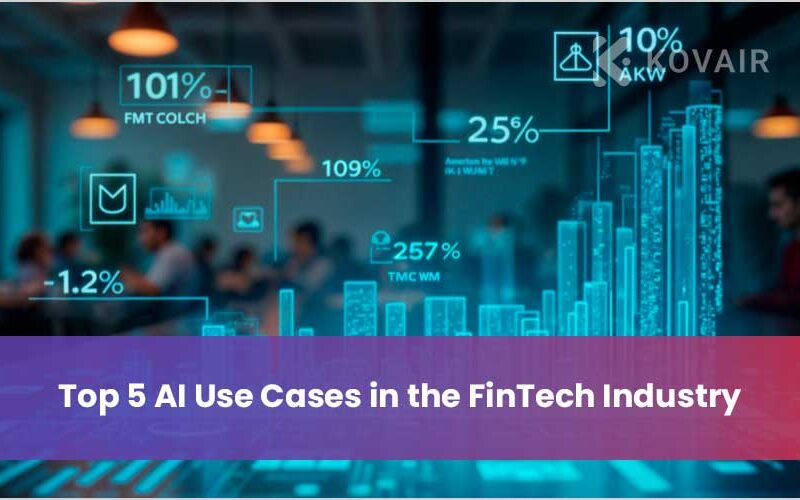
As AI software development continues to blur the line between automation and awareness, a quiet question grows louder: “Are there any ethics in AI development – or we’re keeping fingers crossed for the best?”
It’s not just about writing better code. Today, we are engineering solutions that influence hiring decisions, defence operations, medical diagnoses and fair justice. With every line of code we write, we’re rooting a mindful integration of worldview.
The undeniable truth is, AI doesn’t have ethics. Developers do.
And as intelligent systems scale to be more autonomous, the responsibility to ensure fairness, accountability and transparency falls not on the machines, but on the core software developers designing them.
Navigating Power and Promise, Peril and Prejudice in AI Landscape
As custom AI development services expand its horizons, developers have found themself in a complex maze of ethical AI development challenges that demand careful consideration and painstaking decision making.
- AI Bias Is The Biggest Concern – AI bias (algorithmic bias) is not a futuristic concept – it’s reality. From facial recognition challenges to unfair hiring practices, AI solutions are mirroring and reinforcing inequalities integrated in their training data. This is why responsible AI integration practices are inevitable for building fair and ethical AI.
- AI with Security and Privacy Concerns – Black-box models betray the trust they want to build. How? When algorithms start making decisions without any transparency, there is a loss in the ability to ensure fairness, correct errors, or (in some cases) hold solutions accountable. This is why explainability is crucial for responsible innovation.
- AI Gradually Owning the Power – With artificial intelligence going autonomous, the question isn’t what it can do, but who’s really in power. From autonomous vehicles to weapons, delegating life-inspiring decisions to algorithms ignites urgent debates around responsibility, human oversight and ethics in an AI-enabled world.
Ethical AI Development – From Principles to Practice
Understanding the ethics in AI development needs a proactive approach. To achieve this, we need to skip the reactive damage control and actively weave ethical considerations into the fabric of software development services.
This shift requires a multifaceted approach, encompassing principles, processes and tools.
Core Principles: 5 Guiding Principles to Underpin Ethical AI Development
- Fairness: AI solutions should treat everyone fair and equally, regardless of race, gender or other protected characteristics.
- Privacy: AI development and deployment must respect users’ privacy rights and uphold robust data protection measures.
- Transparency and Explainability: It’s important to understand how AI makes decisions, allowing us to identify and address bias.
- Accountability: Everyone must be held responsible for the actions of AI systems.
- Human Control and Oversight: There should be a balance between human intervention over AI systems, ensuring they’re in adherence with humanity.
Ethical Development Process: 4 Principles for an Ethical Development Process
- Risk Assessment: Identify potential threats throughout the development lifecycle and proactively mitigate them.
- Bias Detection and Mitigation: Integrate techniques to find and remove bias from training data and algorithms.
- Auditing and Monitoring: Regularly monitor AI systems for bias and simultaneously ensure they adhere to ethical guidelines.
- Stakeholder Engagement: Include distinctive stakeholders in the MVP development services for startups, ensuring AI caters to the needs and values of the communities it impacts.
Ethical Tools and Resources: 3 Tools that Support Ethical AI Development.
- Fairness Toolkits: Adhere to frameworks and algorithms that identify and resolve bias in datasets and models.
- Explainable AI (XAI) Techniques: Ensure methods for making AI decision processes more transparent and understandable.
- Ethical AI Guidelines: Frameworks and principles built by leading organisations like the IEEE Global Initiatives on Ethical Considerations in AI and Autonomous Systems and the European Commission’s High-Level Expert Group on AI.
Finally…
A leading AI development company believes artificial intelligence continues to shape everything from healthcare to hiring, where ethics can no longer be a choice – they must be the firm foundation. Developing without ethical guardrails risks embedding bias, violating privacy, and eroding public trust. But, with every automated decision, there’s an ethical crossroad we must not ignore.
Still, the question that persists is – how, and for whom, to build powerful AI? After all, the future of AI depends on how well we respect core principles – safeguarding individual rights, ensuring consent, minimising harm in MVP development services, and making decisions that can be explained, not just executed.
If you are ready to leap into ethical AI development, now is the time to partner with a trusted AI development company and lead with confidence.



